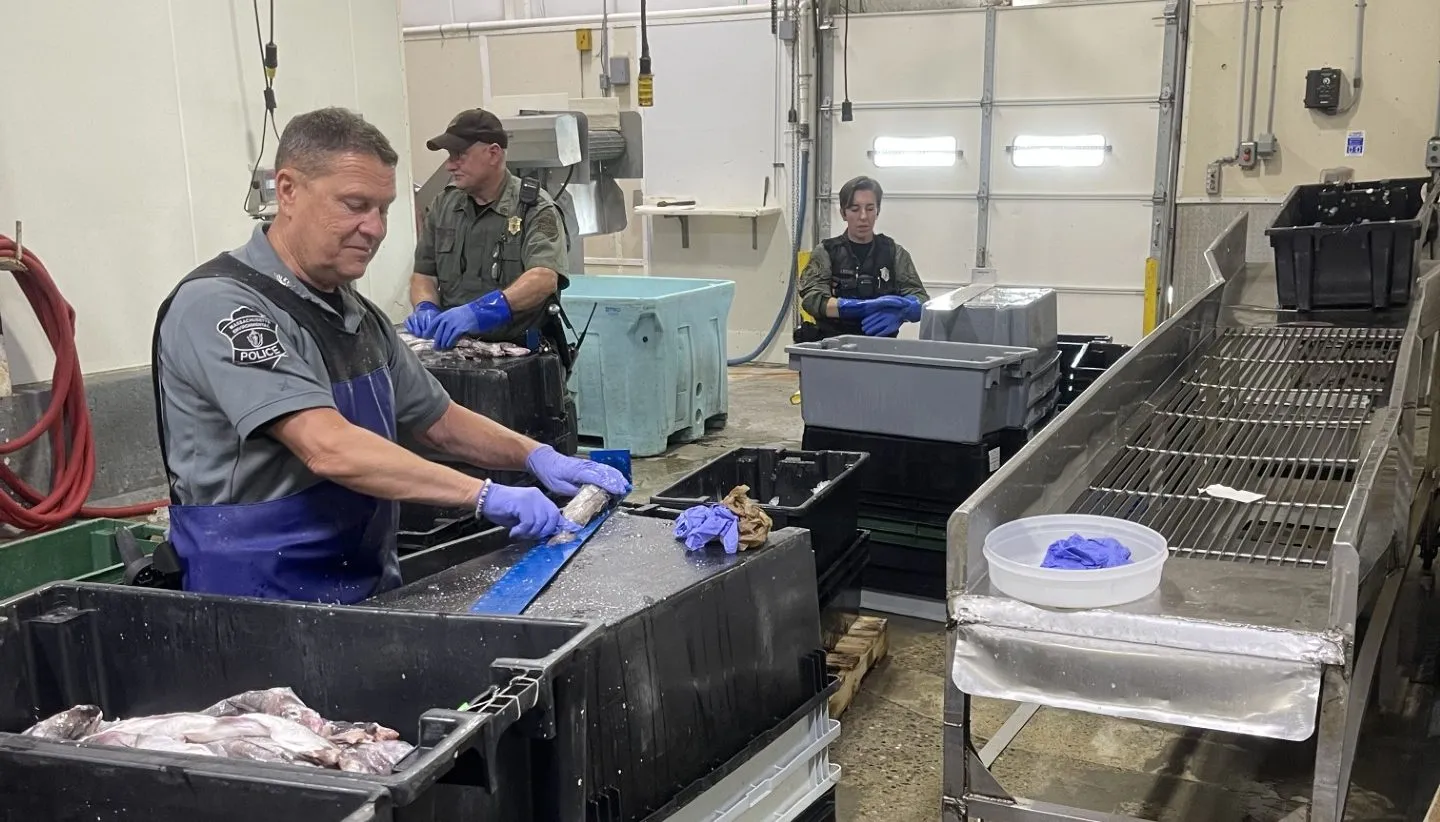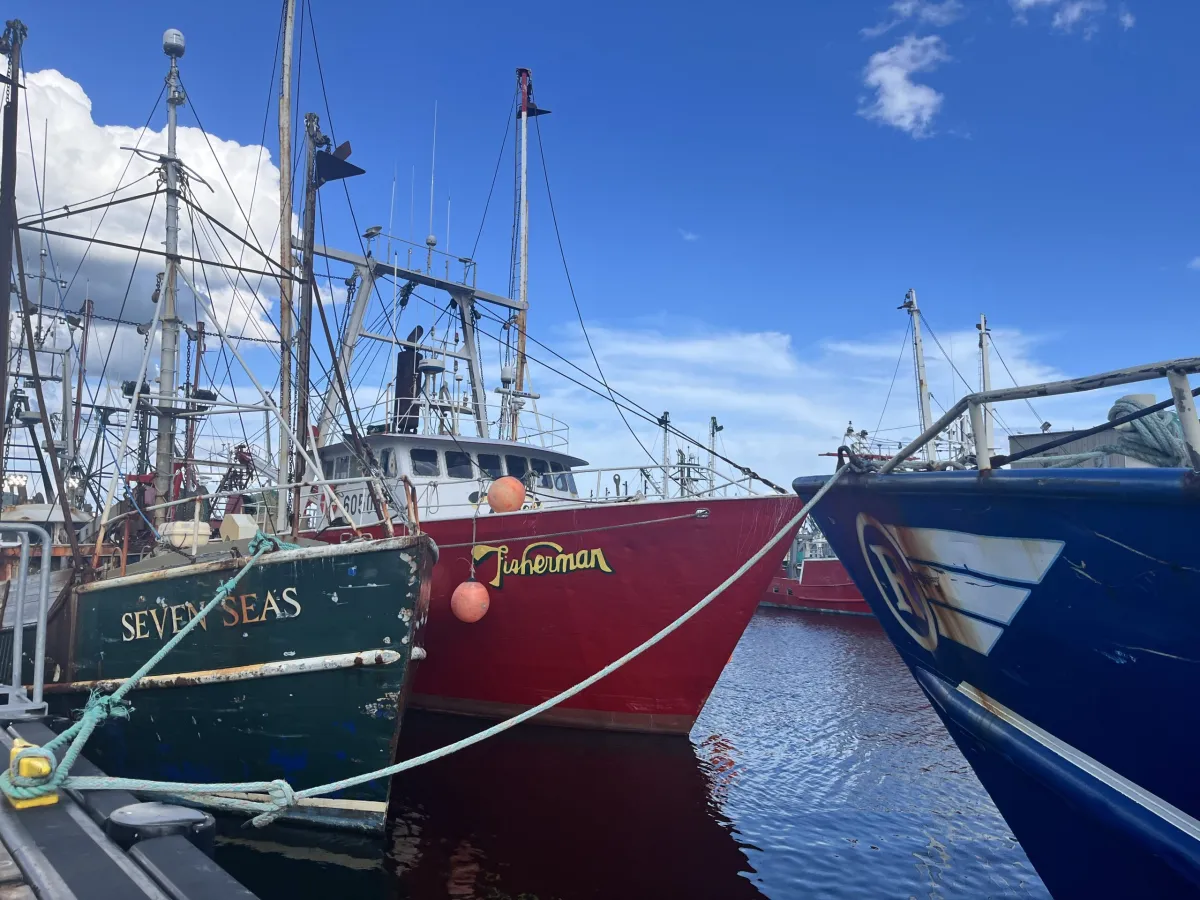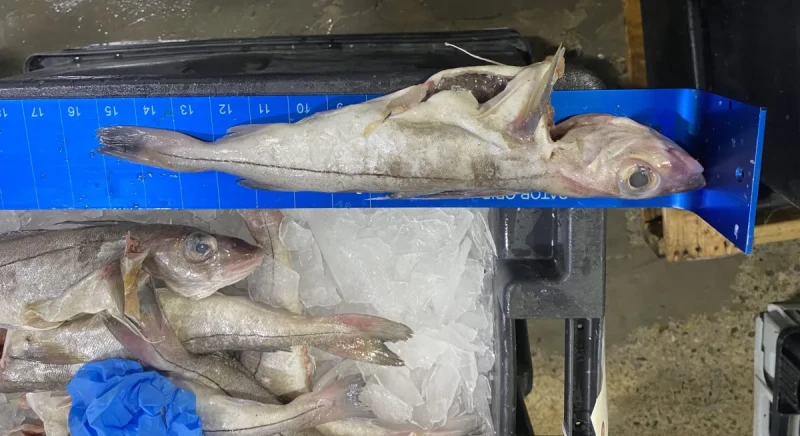Massachusetts Environmental Police seized more than 3,000 pounds of illegally harvested haddock from a New Bedford processing plant on Thursday in the first commercial-scale bust of the groundfish season, MEP officials said.

Acting Col. Patrick Moran said he was on a routine foot patrol inspecting processing plants on the New Bedford waterfront when he discovered what appeared to be undersized fish in an assembly line ready to be fileted. He ordered the processing plant to temporarily cease operations as he measured the fish, determining about 3,000 of the 11,000 total pounds of haddock were under the legal limit of 16 inches.
MEP said it is not releasing the name of the vessel that caught the illegal fish or the processing plant until charges are formally filed. But industry sources confirmed Monday that the illegal fish was caught by the F/V Fisherman, an 82-foot trawler based out of New Bedford and owned by M & P Fishing Corp. Business filings list Mario Ribeiro and Pedro Cura as owners of the company. The name of the captain was not released. Col. Moran said the illegal fish was offloaded late Wednesday night at BASE Seafood Auction, after which it was sold to the unnamed processing plant.
Ribeiro and Cura could not be reached for comment on Monday.
“When you bring in undersized fish, you are taking away next year’s legal fish,” Col. Moran said. “It has a compounding effect on the health of the fishery.”
The groundfish industry is a far cry from New Bedford’s lucrative scallop industry. In 2012, regulators declared a federal fishery disaster for groundfish due to decades of overfishing and poor management. Year by year, quotas have been cut, and the industry has continued to contract. Haddock are among the most abundant and targeted of the 13 species referred to collectively as groundfish. But last year, the haddock quota was cut by 41%, a move that received significant pushback from the industry.

The F/V Fisherman was profiled by The Standard-Times last year, and the owner and captain expressed frustration with the high costs of operating a groundfish vessel as profits have flatlined.
“It gets expensive quick,” captain Paulo Valente told The Standard-Times. “We’re paying for quota, and all the regulations make it really hard … It puts a lot of stress on me because when I leave the dock, I have to provide for myself and for my crew, I have to pay the bills, and at the end of the trip you have to show some kind of profit.”
Col. Moran said the captain is facing criminal charges but the fines are capped at $1,000 — which he said significantly undervalues the environmental impact of landing undersized fish. It is unclear if the seafood auction or the processing plant will be facing similar charges.
“Unfortunately, for some fishermen, a fine is the price of doing business,” he said. He added that the Environmental Police are spread thin, with only one officer officially assigned to monitor the Port of New Bedford — the nation’s top-earning commercial fishing port. “I worry about how much we might be missing,” he said. “To say we aren’t catching all the violations is an understatement.”
Col. Moran said that the fish is not going to waste. It was donated to the Fishermen’s Preservation Trust on Martha’s Vineyard and the Wampanoag tribes in both Aquinnah and Mashpee.
Article courtesy of Will Sennott and The New Bedford Light. Read more here.







